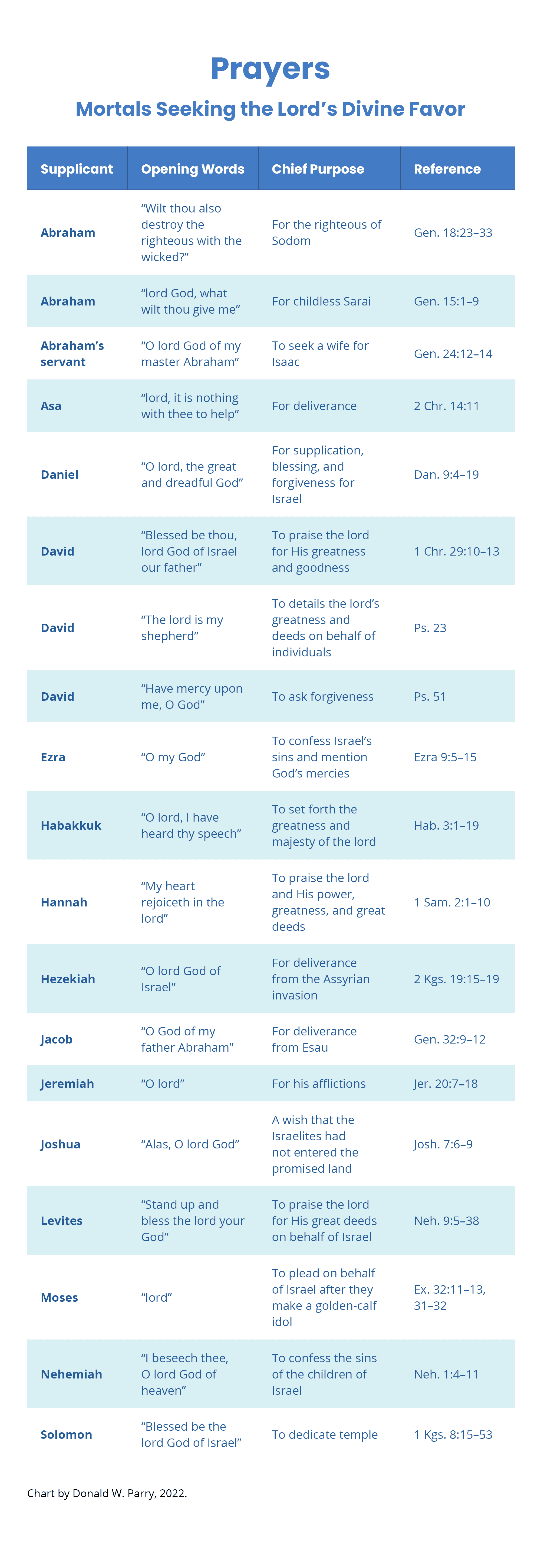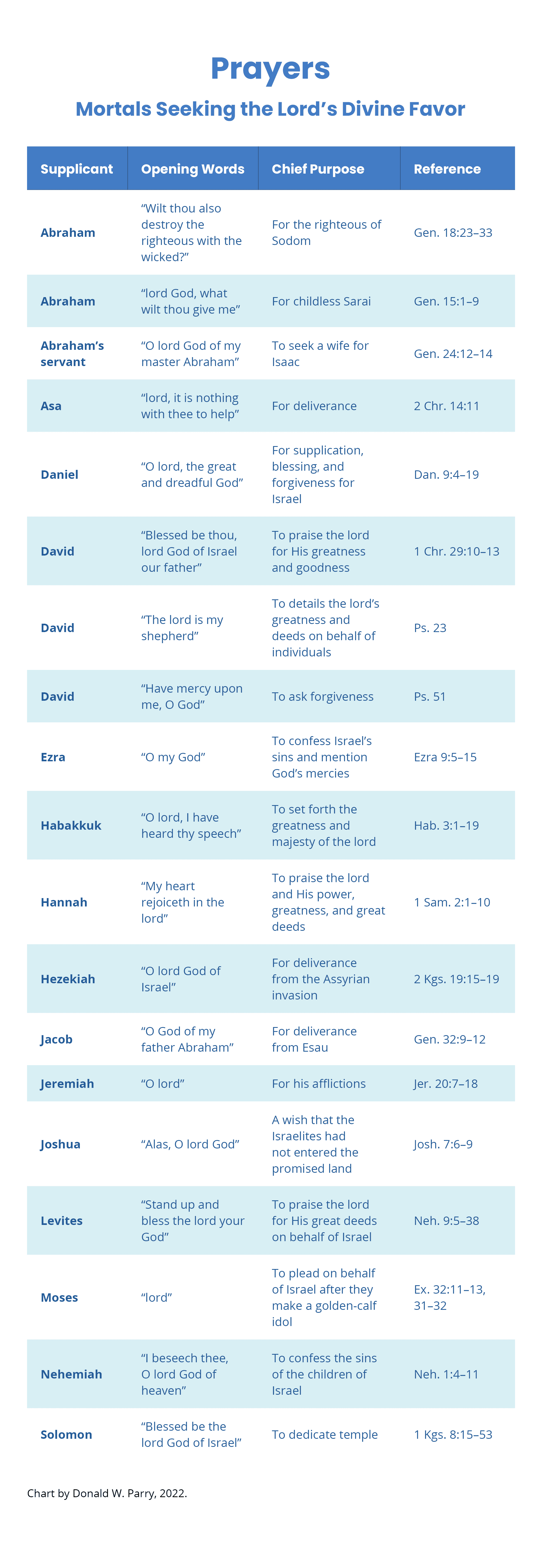
Share
Prayers: Mortals Seeking the Lord's Divine Favor

Title
Prayers: Mortals Seeking the Lord's Divine Favor
Publication Type
Chart
Year of Publication
2022
Authors
Parry, Donald W. (Primary)
Share
Abstract
Old Testament prayers were heartfelt and offered by men and women, prophets, kings, laypersons, servants, and others. They were generally addressed to the lord, to God, or to the lord God; but some prayers have additional expressions such as “lord God of Israel,” “the lord God of heaven,” “the lord God of my master Abraham,” and “lord, the great and dreadful God.” Prayers were offered for one’s personal needs, such as Jeremiah praying for deliverance from his afflictions or David pleading for forgiveness. They were also offered on behalf of others, such as Abraham praying for Sodom’s inhabitants, Abraham’s servant seeking a wife for Isaac, or Ezra praying for members of the house of Israel.
The purposes for offering prayers varied during ancient times just as they do in our own day—to be blessed with a baby, to find a spouse for a loved one, to ask for forgiveness or mercy, to confess one’s sins, to plead for deliverance from one’s enemies, to praise the lord’s name, or to dedicate the temple.
Even the posture of prayer is God-focused, which included bowing down (Gen. 24:52; Ps. 95:6), bowing the head (Isa. 58:5), and kneeling (1 Kgs. 8:54; 2 Chr. 6:13; Ps. 95:6)—each posture points to the humility of the one uttering the prayer. Gestures of prayer also include raising the hands to heaven (1 Kgs. 8:38–39; Ps. 28:2; 63:4; 134:2; Isa. 1:15; Lam. 2:19; 3:41).
With regard to frequency, the scriptures record that Daniel prayed three times a day; Daniel 6:10 records that he “kneeled upon his knees three times a day, and prayed, and gave thanks before his God.”
The chart sets forth several prayers from the Old Testament; the columns indicate the name of the supplicant (column 1, listed alphabetically), the opening words of the prayer (column 2), the prayer’s chief purpose (column 3), and the scriptural reference (column 4).

Bibliographic Citation
Terms of use
Items in the BMC Archive are made publicly available for non-commercial, private use. Inclusion within the BMC Archive does not imply endorsement. Items do not represent the official views of The Church of Jesus Christ of Latter-day Saints or of Book of Mormon Central.